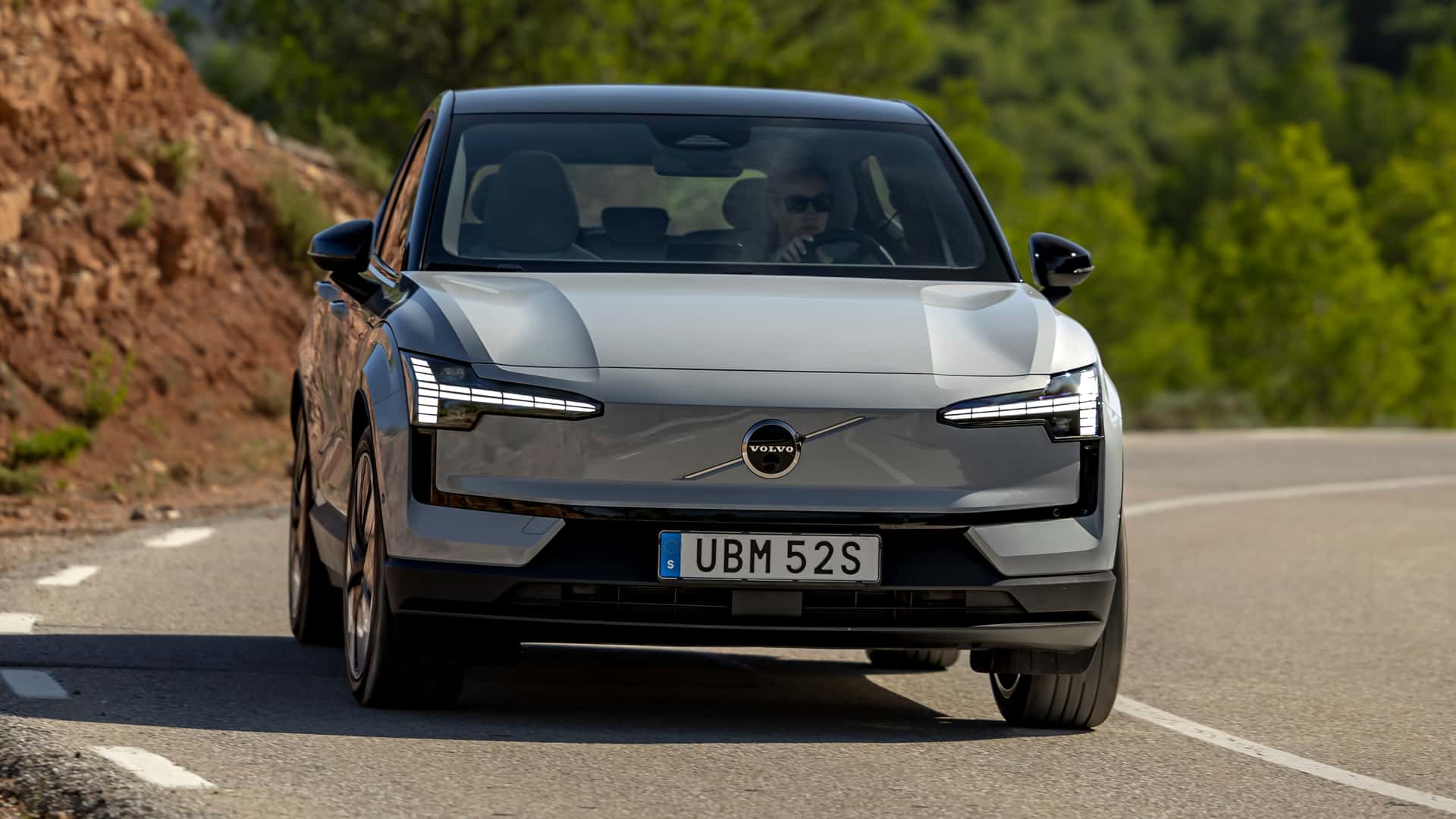Data from thousands of EVs shows the average daily driving distance is a small percentage of the EPA range of most EVs.
For years, range anxiety has been a major barrier to wider EV adoption in the U.S. It’s a common fear: imagine being in the middle of nowhere, with 5% juice remaining in your battery, and nowhere to charge. A nightmare nobody ever wants to experience, right? But a new study proves that in the real world, that’s a highly improbable scenario.
After analyzing information from 18,000 EVs across all 50 U.S. states, battery health and data start-up Recurrent found something we sort of knew but took for granted. The average distance Americans cover daily constitutes only a small percentage of what EVs are capable of covering thanks to modern-day battery and powertrain systems.
The study revealed that depending on the state, the average daily driving distance for EVs was between 20 and 45 miles, consuming only 8 to 16% of a battery’s EPA-rated range. Most EVs on sale today in the U.S. offer around 250 miles of range, and many models are capable of covering over 300 miles.



Batteries are absolutely not more complex than an internal combustion car. They’re newer, but not more complex.
Why is it that all the batteries are the things that fail in these designs?
And why is it that the gasoline engine lasts for a decade or longer, with very few repair issues? In fact, when was the last time you heard of an old car where the engine needed to be replaced?
When old cars break down, its the suspensions, the belts… radiator (those things rust / break surprisingly often), etc. etc. Its not really the ICE parts that break down.
Check engine lights, oil leaks, coolant leaks transmission leaks, timing belts, timing chains, thermostats, water pumps, compression leaks, vacuum leaks, catalytic converters, oxygen sensors, ignition coils , spark plugs, spark plug wires, distributors, fuel pumps, fuel filters, fuel leaks, cracked block, thrown rod, warped crankshaft, scorn cam shaft, cam phasers, differentials, transmission problems and on… and on…
These are just SOME of the repairs that are common to ONLY gas vehicles and you won’t have any of these problems with an EV.
And yet…
https://www.consumerreports.org/cars/car-reliability-owner-satisfaction/electric-vehicles-are-less-reliable-than-conventional-cars-a1047214174/
You can theorycraft all you want. I have hard stats.
You don’t have any stats. You have a link to a consumer reports article based off a survey…
Let me show you how flawed that is:
I’m going to hold a survey of my household to see how many people say you are wrong.
The results are in! 100% of the people surveyed said you’re wrong!
Consumer Report’s survey is considered one of the best in the business. The name speaks for itself.
If you don’t want to believe it, then whatever. Feel free to give me the stats behind your discussion points.
I already have. Here are the stats again:
Gas vehicles have complex combustion engines, transmissions, differentials, emission systems all of which require maintenance and can leak fluids that are expensive to fix. All of which are common points of failure. Everyone I know owns a car and all of their cars have had problems with one or more of these systems. These are all facts that are common knowledge and don’t need any supporting evidence.
EVs have 1 common point of failure. The battery. That’s because there isn’t anything else to break on them. They’re simple and durable.
That’s not stats. That’s a paragraph of nonsense.
“Stats” means statistics. Go see which parts are failing out there. I brought up Consumer Reports survey that has 300,000+ cars as part of their yearly study. I dunno exactly what you think has a better statistic than Consumer Reports survey, but I’m curious.
What parts of cars are failing? Across different brands, across different designs, etc. etc. Is there any pattern?
Answer: I already told you above, and have posted the articles and survey results.
All you did was post an article about a survey that reinforces what I said:
The only thing that goes bad on EVs is the battery because nothing else breaks.
That’s not the case on gas vehicles cause everything breaks on them. INCLUDING the battery.
deleted by creator
deleted by creator
Hybrids are the most reliable. That’s my point.
The overall numbers are a bit misleading yes. But…
So its still possible to pick out reliable PHEVs with research (and EVs I guess). But all this “Hybrids are more complex” is a crock of bullshit. They’re literally the most reliable vehicle on the market when taken as a whole.
Not my experience.
I’m glad you have experience. But I’m far more likely to trust Consumer Reports and their published experience than your individual experience.